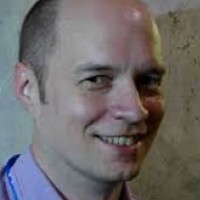
Catch up on this Bioengineering Department Seminar on our YouTube channel: Click here to watch
Talk title:
Nonlinear Independent Component Analysis, with Applications to EEG/MEG
Talk abstract:
Unsupervised learning, in particular learning general nonlinear representations, is one of the deepest problems in machine learning. Estimating latent quantities in a generative model provides a principled framework, and has been successfully used in the linear case, e.g. with independent component analysis (ICA) and sparse coding. ICA is well established in analysis of brain imaging data. However, extending ICA to the nonlinear case has proven to be extremely difficult: A straight-forward extension is unidentifiable, i.e. it is not possible to recover those latent components that actually generated the data. Here, we show that this problem can be solved by using additional information, in particular in the form of temporal structure. Our methods are related to “self-supervised” learning increasingly used in deep learning. Application of such methods to EEG/MEG analysis is a promising avenue for research.
Biography:
 Aapo Hyvarinen studied undergraduate mathematics at the universities of Helsinki (Finland), Vienna (Austria), and Paris (France), and obtained a Ph.D. degree in Information Science at the Helsinki University of Technology in 1997. After post-doctoral work at the Helsinki University of Technology, he moved to the University of Helsinki in 2003, where he was appointed Professor in 2008, at the Department of Computer Science. From 2016 to 2019, he was Professor at the Gatsby Computational Neuroscience Unit, University College London, UK. Aapo Hyvarinen is the main author of the books “Independent Component Analysis” (2001) and “Natural Image Statistics” (2009), Action Editor at the Journal of Machine Learning Research and Neural Computation, and has worked as Area Chair at ICML, ICLR, AISTATS, UAI, ACML and NeurIPS. His current work concentrates on unsupervised machine learning and its applications to neuroscience.
Aapo Hyvarinen studied undergraduate mathematics at the universities of Helsinki (Finland), Vienna (Austria), and Paris (France), and obtained a Ph.D. degree in Information Science at the Helsinki University of Technology in 1997. After post-doctoral work at the Helsinki University of Technology, he moved to the University of Helsinki in 2003, where he was appointed Professor in 2008, at the Department of Computer Science. From 2016 to 2019, he was Professor at the Gatsby Computational Neuroscience Unit, University College London, UK. Aapo Hyvarinen is the main author of the books “Independent Component Analysis” (2001) and “Natural Image Statistics” (2009), Action Editor at the Journal of Machine Learning Research and Neural Computation, and has worked as Area Chair at ICML, ICLR, AISTATS, UAI, ACML and NeurIPS. His current work concentrates on unsupervised machine learning and its applications to neuroscience.
For more details, see his personal home page.